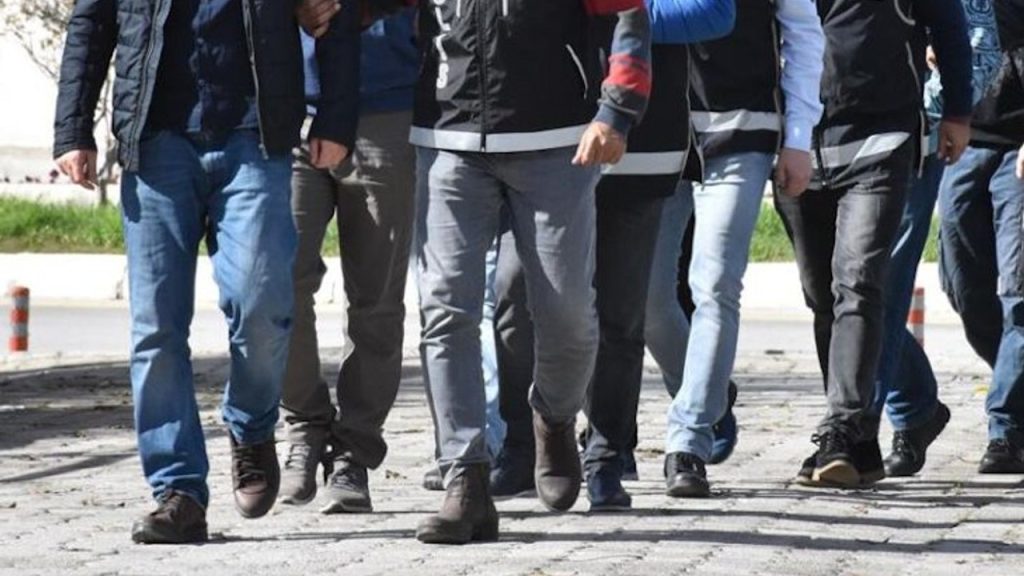In a widespread crackdown, Turkish authorities have detained 282 individuals allegedly linked to the Kurdistan Workers Party (PKK), a designated terrorist organization, as part of ongoing efforts to address militant threats within the country. The detentions, which took place over a five-day period, included journalists, politicians, and academics, raising concerns about the erosion of civil liberties and democratic governance. This operation coincides with a broader crackdown on pro-Kurdish political representatives and comes amid hopes of a potential resolution to the longstanding conflict between the PKK and the Turkish government.
| Article Subheadings |
|---|
| 1) Overview of the Detentions |
| 2) Background on the PKK and Its Activities |
| 3) Political Repercussions and Reactions |
| 4) Turkey’s Approach to Counter-Terrorism |
| 5) Implications for Peace Efforts |
Overview of the Detentions
The Turkish police recently enacted a series of detentions involving 282 suspects believed to have affiliations with the PKK. These operations spanned across 51 provinces, including major cities like Ankara and Istanbul, as part of a proactive measure against what the government classifies as terrorist activities. The detainees include not only individuals alleged to be militants but also journalists, politicians, and prominent academics, reflecting a significant crackdown on dissenting voices. Such measures have drawn criticism from various sectors of society, as they appear to target individuals involved in advocacy for Kurdish rights and broader civil liberties.
Background on the PKK and Its Activities
Formed in 1978, the PKK has been at the forefront of an insurgency against the Turkish state since 1984, advocating for Kurdish autonomy and rights. This conflict has resulted in over 40,000 deaths, marking it as one of the longest-standing conflicts in modern Turkey. The PKK is considered a terrorist organization by Turkey, the European Union, and the United States, which complicates international dialogue surrounding the matter. The organization is known for employing guerrilla tactics and has been involved in various clashes with Turkish security forces. Additionally, the PKK has been accused of engaging in criminal activities such as drug trafficking and arms smuggling to finance its operations.
Political Repercussions and Reactions
The recent detentions have sparked outrage among opposition groups, particularly the Peoples’ Equality and Democracy (DEM) Party, which condemned the arrests and the ongoing removal of pro-Kurdish mayors. In an address to fellow party members, co-chair Tuncer Bakırhan emphasized that these actions are undermining efforts for peace in the region. The journalist community has also expressed concern, with the Journalists’ Union of Turkey condemning the police raids that led to the arrest of three of their colleagues, arguing that such tactics bypass standard procedures of law enforcement. Critics argue that the Turkish government is intentionally stifling dissent to consolidate power further, especially in light of the approaching 2024 elections.
Turkey’s Approach to Counter-Terrorism
As part of its counter-terrorism strategy, the Turkish government has actively pursued individuals for alleged links to the PKK through extensive police actions, including raids and investigations. Interior Minister Ali Yerlikaya reported that many of those detained are accused of engaging in activities such as PKK propaganda, financing the organization, and participating in illegal protests. The authorities also seized various weapons during the operations, including AK-47 rifles, highlighting the potential threats posed by these networks. This aggressive stance underscores Turkey’s commitment to combatting what it perceives as an existential threat to national security.
Implications for Peace Efforts
While there are ongoing discussions regarding the potential for peace with the PKK, the current government actions raise serious questions about the feasibility of negotiations. Jailed PKK leader Abdullah Öcalan is anticipated to address the situation soon, possibly calling for an end to hostilities. His statements are crucial, especially after a key ally of President Recep Tayyip Erdoğan urged the PKK to consider laying down their arms. Skepticism looms over these peace efforts, primarily due to the prevailing climate of fear and repression within Turkey. Observers warn that the latest crackdown could exacerbate tensions rather than encourage dialogue, further entrenching divisions within Turkish society.
| No. | Key Points |
|---|---|
| 1 | 282 suspects linked to the PKK have been detained across Turkey. |
| 2 | The crackdown has involved journalists, politicians, and activists, raising civil rights concerns. |
| 3 | The PKK has been implicated in insisting on Kurdish rights while being labeled a terrorist organization. |
| 4 | The government cites national security threats as justification for its aggressive counter-terrorism measures. |
| 5 | There are apprehensions about the implications for future peace talks between the government and the PKK. |
Summary
The recent detentions of 282 individuals in Turkey have highlighted ongoing tensions regarding the Kurdish issue and the government’s approach to counter-terrorism. While there may be an opportunity for dialogue aimed at ending decades of conflict, the current crackdown reflects significant challenges to democracy and civil rights within Turkey. As various stakeholders react to these developments, the potential for sustainable peace remains uncertain, hinging on future statements from key figures such as Abdullah Öcalan and actions taken by the Turkish government.
Frequently Asked Questions
Question: What is the PKK?
The PKK, or Kurdistan Workers Party, is a militant organization founded in the late 1970s that has led an armed insurgency against the Turkish state, advocating for the rights and autonomy of Kurdish people in Turkey.
Question: Why is there a crackdown on pro-Kurdish groups in Turkey?
The crackdown is part of Turkey’s broader counter-terrorism strategy, aimed at dismantling links to the PKK, which the government and its allies classify as a terrorist organization responsible for violence and instability.
Question: What are the potential consequences of these detentions for peace negotiations?
The detentions could undermine trust between the Turkish government and Kurdish representatives, possibly hindering ongoing or future peace negotiations aimed at resolving the decades-long conflict.


